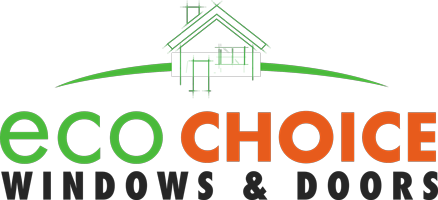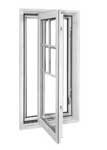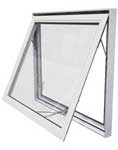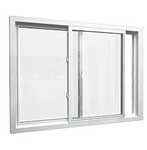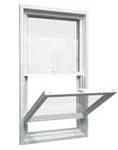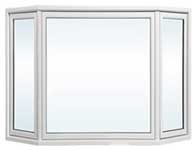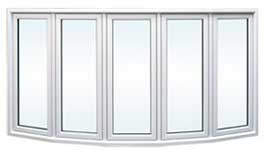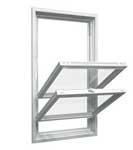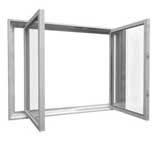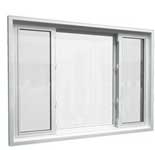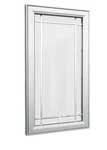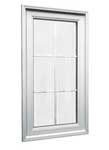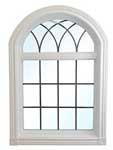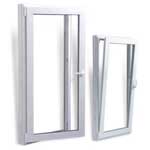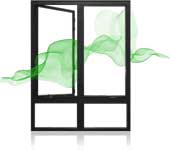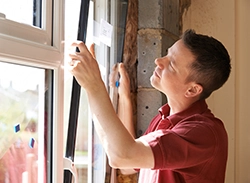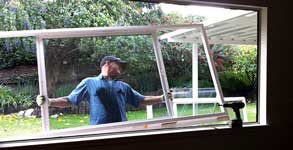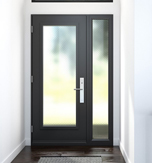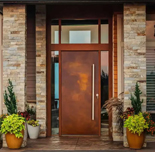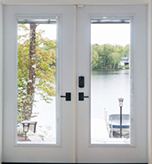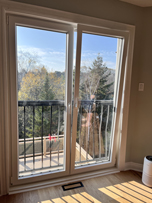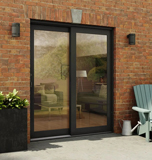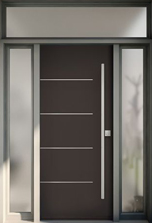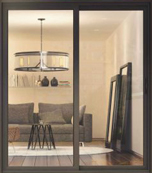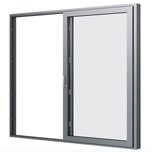FREQUENTLY ASKED QUESTIONS FOR WINDOWS AND DOORS
Whether you are researching windows for the first time or revisiting a particular concern or interest, we offer a list of Frequently Asked Questions (FAQ) . We welcome your questions, either by phone or email.
WHAT IS THE COST OF WINDOW REPLACEMENT?
The average price of replacing a standard casement, awning, hung or slider window is $250 – $1000. Bay/Bow windows are more expensive, they cost on average $2000 to $3000, respectively. This price is for a window retrofit, with the replacement window being installed in a structurally sound frame. A full-frame, brick to brick installation will add about 15% to the cost of the window replacement. The more complex a window’s mechanism, the more expensive it will be. For instance, a window with a crank handle is more expensive than a sliding window. Window decorations such as window grills and privacy glass will increase the price of your windows.
DOES REPLACING WINDOWS INCREASE HOME VALUE?
Yes, replacing old windows will raise the value of your home. In fact, it is said window replacement is one of the most cost-effective ways of increasing the asking price of a house. The return on investment is estimated to be between 75% and 90%. Expect a greater increase if you get energy-efficient, high-performance windows.
WHAT ARE THE DIFFERENT TYPES OF WINDOWS?
Different types of windows are designed for different purposes. Some let in more light, some increase airflow, some are designed to improve views and others are designed to fit in architecturally with the building. These are the different types of windows commonly available. 1. Awning windows 2. Casement windows 3. Single and Double-Hung windows 4. Picture windows 5. Bay and bow windows 6. Single and double slider windows 7. European tilt and turn windows 8. End vent windows 9. Basement windows 10. Arched or shaped windows
WHAT TYPE OF WINDOW STYLE IS THE MOST ENERGY EFFICIENT?
Casement, awning and fixed windows are the most energy-efficient window styles for your home. Casement and awnings have a compression blub seal on all four sides of the frame so when the casement window is closed, the sash presses tightly against the frame so air cannot pass through. A strong gust of wind can press the sash and frame closer together. Fixed windows are the most energy-efficient style since the do not any operating mechanism which does not allow any air infiltration to pass through.
WHAT IS THE BEST MATERIAL FOR AN EXTERIOR DOOR?
The three material choices for exterior doors are wood, steel, and fiberglass. Which one is best depends on your specific needs and budget?
Generally, wood is best for aesthetics, steel for security, and fiberglass for a maintenance-free option.
1. Steel Inexpensive and energy efficient, steel doors are strong and secure and have the largest selection of traditional and modern door slab options. Steel doors don’t crack or warp like other materials, but they are easy to dent and difficult to repair.
2. Fiberglass Fiberglass doors are maintenance-free and filled with insulation for energy efficiency. They can be designed to mimic the look of wood, and they resist wear and the elements better than both wood and steel. Low-quality doors fiberglass doors can warp over time.
3. Wood Wooden doors are attractive but expensive. They are heavy, secure, and resistant to wear and damage, but wood does need protection from the elements and requires repainting or refinishing.
HOW TO PREPARE FOR REPLACEMENT WINDOWS INSTALLATION
There are a few things you can do to prepare your home for replacement windows. These steps will make the installation much more seamless and fuss-free.
- Clear a path by moving furniture to make it easy for installers to walk in and out of the home and give them room to work
- Remove any window blinds and decorations on and around the window (including blinds and curtains)
- Cover furniture and delicate items because there’s going to be a lot of dust and debris
- Make sure the installers have access to your house and you have disarmed the door and window alarms
- Make sure parking on the driveway or on the street is available.
HOW MUCH DOES REPLACING AN ENTRY DOOR COST?
The cost of replacing an entry door can be broken into the material of the door, style, and size. A single insulated steel entry door can start at approx. $1200 for a basic door with no glass. The same door style in Fiberglass would start at $2200.00. Price would increase if color, lock hardware and glass inserts are added to the door.
WHEN IS THE BEST TIME TO INSTALL WINDOWS AND DOORS?
Window replacement can be done throughout the year but the best time to install windows and exterior doors would be spring, summer and early fall as they provide the optimal weather condition for caulking and insulation foam performance. However, some people get their windows installed in off-peak winter months as they can get discounts on installation and wait periods are shorter.
WHAT ARE THE BENEFITS OF ENERGY EFFICIENT VINYL WINDOWS?
Vinyl Windows are the most popular material in use today and represent the largest market share in the window replacement industry. Vinyl windows provide energy efficiency because they are resistant to heat flow. They are also strong and durable, with little maintenance required. They do not need to be scraped, painted, or stained and guaranteed to always look their best. Vinyl windows come in a wide range of prices and colours. They can be easily customized and are available in a wide range of styles, shapes and sizes. Professional installation is quick and easy.
Our customers benefit:
- Lower heating and cooling costs.
- No painting or staining required.
- Extremely durable and long lasting product.
- Easily customized
- Wide selection of styles
- Easily and quickly installed
WHAT SHOULD I LOOK FOR IN SELECTING AN ENERGY EFFICIENT WINDOW?
Whether you are purchasing windows for new construction or replacement, selecting high performance energy efficient windows is a must. Our Energy Star window system delivers industry leading energy efficient technologies. Our superior sealed unit technology and frame profile, combined with Low-E glass and argon gas, significantly improve the energy performance, comfort and security of your home.
IS VINYL AN ENVIRONMENTALLY FRIENDLY PRODUCT?
Vinyl is one of the most successful modern synthetic materials. It makes excellent use of resources and is suitable for a wide range of applications that surround us in everyday life. Products made of vinyl offer durability, fire resistance and energy efficiency.
HOW DO I CARE FOR MY VINYL WINDOWS?
Vinyl windows are virtually maintenance free, but some simple routine cleaning and maintenance will ensure they perform their best and continue to look great.
Frames
Wash window and patio door frames with mild, nonabrasive soap and water. Never use abrasive or acidic cleaners because they might cause permanent damage to the frame finish. Always test cleaners in an inconspicuous area first. Wipe dry when finished.
Glass (all types)
- Clean glass with a mixture of mild dish soap and water. When finished, rinse completely with clear water and wipe dry with a soft cloth.
- Do not use petroleum-based cleaners or caustic chemicals; razor blades, putty knifes or abrasive pads; high-pressure water hoses on any part of your window or patio door.
- Use only mild soap, water, and a soft brush when cleaning your screens. When finished, rinse with clear water and wipe dry.
WHAT IS LOW-E GLASS?
Low Emissive or “Low-E” glass has a special thin-film metallic or oxide coating on its interior surface, which allows the passage of short-wave solar energy (light) but prevents the passage of long-wave energy (heat) from the sun or heating systems through the glass. Low-E glass allows light to enter while also providing thermal insulation. This type of glass cuts the loss of heat during the winter and cuts the absorption of heat during the summer by reflecting the heat back to its source, thus providing year-round savings by lowering utility bills. Low-E glass also selectively filters the sun’s energy, blocking up to 84% of the sun’s ultraviolet rays in the summer, thus reducing the degree of fading of upholstery, carpet and drapes. Low E also reduces heating costs reflecting room side heat back into the room resulting higher energy savings.
WHAT IS ARGON GAS AND WHY IS IT USED WITH LOW-E GLASS?
Argon is a safe, odourless, colorless, non-toxic, non-flammable inert gas that is used in place of air between the glass panes of an insulated Low-E glass unit. Argon’s heat conductivity is lower than that of air, and thus it is a better insulator. Argon is not an effective solar performer by itself; that is why it is only used in conjunction with Low-E glass.
WHY SHOULD I BE CONCERNED ABOUT WINDOWS?
Windows can be responsible for unnecessary heat loss, high-energy consumption and cold drafts and can be the reason for condensation problems within homes. Windows and the area around them are the biggest single area of heat loss in the home.
HOW CAN I TELL IF I NEED NEW WINDOWS?
- Difficult to open or close
- Air leaking through or around the window
- Excessive condensation or icing on the inside of the window panes
- Windows rattle in the wind
- Paint chipping or peeling
- House is always too cold in winter – or too hot in summer
WILL REPLACING MY OLD WINDOWS REALLY CUT DOWN ON MY HEATING BILLS?
Yes! Windows are one of the most important aspects of regulating home temperatures. Most windows in older homes were designed when energy was cheap and new energy efficient materials were unknown. Today’s newer energy efficient windows are designed with overall thermal efficiency in mind; keeping the heat in and the cold out. Typically, an older home can lose up to 50 percent of its energy heat through leaky, drafty windows and doors.
ARE NEW WINDOWS A BAD INVESTMENT IF I PLAN ON SELLING MY HOME?
No! In fact, not only will new windows make your home more energy efficient and visually appealing, but they will increase the overall value of your home.
WHY CHANGE TO VINYL WINDOWS INSTEAD OF ALUMINUM OR WOOD WINDOWS?
Vinyl withstands assaults from moisture, heat, cold, humidity, salt, pollutants and acid rain; assaults that can and do affect wood and metal. Vinyl windows and patio doors never flake, blister, stick, rot, rust, peel or corrode. Vinyl’s color is integral throughout the material, so scratches go virtually unnoticed. You never have to paint, strip and sand or lubricate vinyl windows or patio doors. Vinyl is truly the most durable, lowest maintenance window and patio door material available.
WHAT IS CONDENSATION AND WHAT CAN I DO ABOUT IT?
Condensation occurs when humid air comes in contact with a surface that is cooler than the air itself. In winter, when your high-quality vinyl windows are efficiently keeping cold air out and warm moist air in, condensation may appear as fog or moisture on the glass. Condensation does not indicate a problem with your windows; quite the contrary. It means you’re holding in warm air like never before. But you’re holding in humidity, too.
HOW CAN I CONTROL CONDENSATION?
Condensation is best controlled by controlling the source of humidity and by ventilating your home. Common sources of humidity are gas burners and clothes dryers. Make sure these are vented to the outside of your house. Sometimes with new windows, condensation occurs which wasn’t occurring before replacing the windows. This is because properly installed dual pane windows seal air leaks that may have been present before the installation; thus air is no longer leaking through or around the windows. Replacing the windows has now reduced a source of ventilation. If you have a lot of humidity within your home, you may find cracking open your windows helps reduce the condensation.
WHAT ABOUT CONDENSATION BETWEEN THE PANES OF GLASS?
Moisture between the panes of glass is an indication that the seal around the windowpanes has failed. This is an unlikely occurrence; however, if it does happen, most window manufacturers will replace the sealed glass unit under warranty.
WHAT IS THE DIFFERENCE BETWEEN “RETROFIT” AND “FULL FRAME REMOVAL”?
Retrofit means leaving the original (old) window frames in and installing the new vinyl frames within the existing. Full Frame Removal means removing the existing (old) window frames.
HOW MUCH WILL NOISE BE REDUCED WITH NEW WINDOWS?
Typically, you will get a 30 – 40% noise reduction with a regular double paned window over a regular single paned window. Please note that new windows cannot reduce the noise completely, since there are many ways of sound entering your house; fireplaces, walls, doors, and vents all allow sound into your home.
I DON’T KNOW IF I CAN AFFORD TO PAY FOR MY NEW WINDOWS OR DOORS ALL AT ONCE, DO YOU OFFER FINANCING?
We sure do. We offer financing with competitive interest rates that our salespeople would love to tell you about when visiting you in your home. Just ask us!
DO YOU HAVE REFERENCES IN MY AREA?
Yes. We have many references available in various areas of Ontario. If you would like to see our work in person please call one of our showrooms in your area. Please make sure to tell us what city you would like the references to be in.
